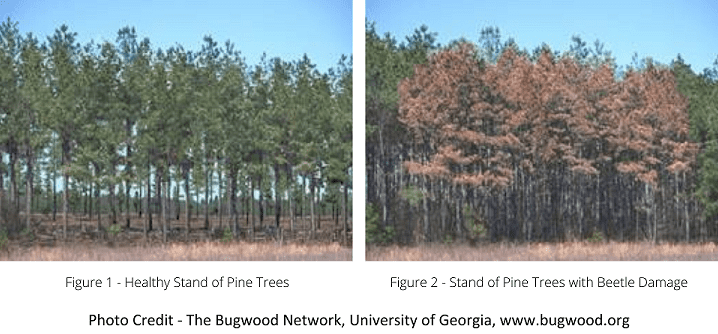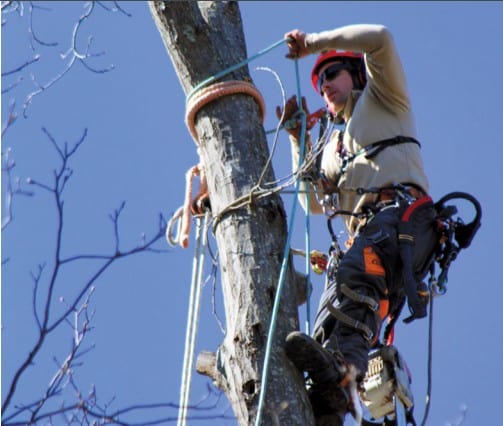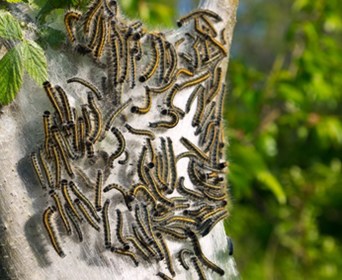By Patricia Chaundoin
When Shea Zwerver was an undergraduate at a small liberal arts college in Pennsylvania, she had two seemingly divergent passions: social sciences and working in the outdoors. From these, she crafted her own undergraduate degree, with her major in Psychology and a minor in Landscape Studies. “I wanted to build understanding with people so they would value the outdoors and the sustainability of natural resources,” she says. “I also was interested in the criminal justice system and the potential for rehabilitation through the outdoors.
“I got an internship at Morris Arboretum in Philadelphia,” Zwerver continues. “While I was there, I created a survey for stakeholders – visitors, board members and others invested in the arboretum – that asked questions to help us understand peoples’ emotional bonds to the landscape.”
Eventually, she received her master’s degree in Environmental Studies from the University of Pennsylvania. “It was then I started seeing opportunities to share and align my goals of landscape, psychology and criminal justice,” she adds.
In 2016, Zwerver landed her current position as community engagement coordinator for the Pennsylvania Department of Conservation and Natural Resources (PA DCNR). Through her connections with Penn State Extension, she became aware of the Arborist Short Course that the extension service has offered to the general public since 2002. The course provides entry-level arborists with the training they need to take the ISA Certified Arborist exam.
“I thought, ‘Let’s try this at a prison,’” says Zwerver. “It would give inmates employable skills, and if they could get their ISA certification while in prison, that would be a huge motivator. Plus, it could give the tree care industry a non-traditional and more diversified workforce pipeline.”
 Zwerver says she approached the Pennsylvania Department of Corrections with her idea in the summer of 2017. “The woman I spoke with said that Forestry Camp would be the perfect place to pilot this program,” she says, adding that the camp is a unique, minimum-security facility located directly across the road from the State Correctional Institution at Rockview, in the center of the state. Inmates nearing the end of their sentences are given the opportunity to live and work at the 72-person facility, which is manned by unarmed corrections officers 24/7, but has no wire fencing or bars on the windows. The camp is in the middle of about 2,600 acres of forest, which is managed for its wood products.
Zwerver says she approached the Pennsylvania Department of Corrections with her idea in the summer of 2017. “The woman I spoke with said that Forestry Camp would be the perfect place to pilot this program,” she says, adding that the camp is a unique, minimum-security facility located directly across the road from the State Correctional Institution at Rockview, in the center of the state. Inmates nearing the end of their sentences are given the opportunity to live and work at the 72-person facility, which is manned by unarmed corrections officers 24/7, but has no wire fencing or bars on the windows. The camp is in the middle of about 2,600 acres of forest, which is managed for its wood products.
“It houses those who are sentenced for more minor infractions,” notes Zwerver. “The inmates are going out daily from 8:30 a.m. to 3:30 p.m. to help manage the forest. They’re felling trees for firewood, operating a sawmill and even maintaining a greenhouse and a small nursery with about 100 trees. They’re working hard and getting lots of practical experience. The Arborist Short Course seemed perfect for them.”
It wasn’t long before Zwerver was launching her program. She offered the residents of Forestry Camp a series of 11 arborist courses over a five-week period last November and December. A total of 15 men signed up for the 18 hours of training based on the ISA’s Arborist Certification Study Guidebook.
Zwerver reached out to a number of tree care specialists – many from Penn State Extension and the PA DCNR Bureau of Forestry – asking them to be instructors. Those who came on board presented topics ranging from “Tree Climbing, Knots and Working in Trees” to “Tree Identification,” “Tree Worker Safety” and “Tree Pruning and ANSI Standards.” Two women from the Delaware Forest Service, Kesha Braunskill and Hannah Small, presented on “Tree Selection,” which included a fun, interactive game where each of the men was given a tree name and then had to find his corresponding leaf shape. Rich Vrboncic of Bartlett Tree Experts in Pittsburgh gave a talk on “Arboriculture as a Career Path,” and Zwerver herself presented a program called “Why Care About Trees?”
“I talked about the benefit of trees and why they are important to the environment and for reducing stress, for emotional leveling,” says Zwerver. “I asked the guys how they felt being in the forest, and one said he felt like a burden was lifted from him. Another said he felt more relaxed being surrounded by all the trees. Many of them said they felt that working with their hands and managing the forest had definite emotional benefits.
“We took a one-mile hike and talked about tree characteristics,” Zwerver says.
 According to Zwerver, all the men – whom she guesses ranged in age from their mid-20s to early 50s – were extremely engaged and respectful during the entire five weeks of the course. “They were very appreciative,” she notes. “They thanked each instructor and shook hands with them. Everyone involved felt it was really worthwhile.”
According to Zwerver, all the men – whom she guesses ranged in age from their mid-20s to early 50s – were extremely engaged and respectful during the entire five weeks of the course. “They were very appreciative,” she notes. “They thanked each instructor and shook hands with them. Everyone involved felt it was really worthwhile.”
Zwerver says one inmate in particular, Greggory Clegg, seemed very engaged during the short course. “He came up to me after the final class and said he was very interested in tree care as a career,” she relates. “Greg had been incarcerated for 13 years and was released this past January. I heard from staff at Forestry Camp that he had pretty good tree-climbing skills. He even sent me a handwritten three-page letter afterward saying how much he appreciated the courses and that he wanted to pursue this, but he didn’t have a resume and wasn’t sure how to put one together. He didn’t even have an email account. Then I realized he’d missed the past 13 years of technology, and something as simple as setting up email probably seemed daunting.
“So I helped him out with some of these things, like getting a resume together, and then I reached out to a few people about giving him an interview when he got out. I got good, positive response from the folks I reached out to. Greg called two of the companies I’d contacted, had interviews with both and ended up with two job offers – and one was with Asplundh.”
According to Clegg, who now lives in Hampton, Virginia, the Arborist Short Course at Forestry Camp refueled a love for trees that he had as a child. “My mother and father had a tree care business, so I’ve been around this work since I was young,” he says. “But I left home at 16 and was on the streets, getting into all kinds of trouble. So when these people came to Forestry Camp to speak to us, I really got that passion again. Hearing them just gave me a real drive and a goal. It made me want to be like them, like they were kind of a role model. And I look at trees in a whole new way now.”

One of Clegg’s job offers is contingent on the 35-year-old getting his Certified Arborist credentials. “I got 18 hours of training (during the Arborist Short Course) and I got my CPR training, so all I need is aerial rescue and then I can take the exam,” he explains. “There is a guy at Cut Knuckle Tree Care (out of Portsmouth, Virginia) who said that once I get my arborist certification, he’ll start training me in sales so I can go out on calls and bid on jobs and talk to customers about tree care.”
For now, Clegg works at Asplundh as a ground worker, dragging brush, running chainsaws and doing other miscellaneous jobs. “My goal is to save enough money to eventually start my own business,” he notes. “I’ll have to start from scratch, get myself a truck and go from there. I’d also like to help others learn the business someday.”
Clegg said he is indebted to Zwerver for her dedication to the arborist program at Forestry Camp. “She told me to follow my dreams and my passions, and she gave me a lot of good pointers,” he says. “She’s a really good person. You don’t find too many people like that around. And she told me to keep in touch so she knows how I’m doing.”
Based on Clegg’s success and the overall positive response she’s had to the program, Zwerver hopes to expand and offer the Arborist Short Course at even more prisons, including women’s correctional facilities. “Three more prisons across Pennsylvania have shown an interest in offering some aspects of the training, and we hope to have another five-week course this fall at Forestry Camp,” she says. “I’m also looking at teaching some basic tree care – like proper watering, disease control and general tree maintenance – to community work crews from local prisons. These are the people you see working along the roadside. Since many municipalities aren’t able to maintain their trees due to budget restraints, giving these people tree care skills could be a great solution.”
In the meantime, Zwerver is looking for Pennsylvania-based tree care business owners who might be willing to hire people who previously spent time in prison. She’s also looking for speakers to present on “soft skills,” as well as creating a resume and how to present oneself in an interview. Eventually, Zwerver hopes to build a nationwide network of tree care employers and company leaders “who are interested in exploring the possibilities of hiring the formerly incarcerated and becoming part of their re-entrance process,” she says.
“We’re talking about giving these people a second chance and helping them make a livable wage once they’re released.”
For more information on how to become involved in the inmate re-entrance process, contact Shea Zwerver at 717-346-9583 or c-********@**.gov.






